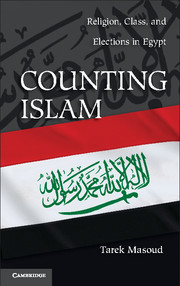Book contents
- Frontmatter
- Contents
- List of Figures
- List of Tables
- Preface
- Acknowledgments
- A Note on Transliteration
- Introduction: An Islamist Monopoly
- 1 Explaining Islamist Dominion
- I ISLAMISTS AND THEIR RIVALS IN AUTHORITARIAN ELECTIONS
- II ISLAMISTS AND THEIR RIVALS AFTER THE “ARAB SPRING”
- 5 God, Mammon, and Transition
- 6 Islam's Organizational Advantage? Or, Why Voters Think Islamists Are Leftists
- 7 Connections, Not Creed: Further Evidence from Egypt and Beyond
- 8 Conclusion
- Bibliography
- Index
6 - Islam's Organizational Advantage? Or, Why Voters Think Islamists Are Leftists
Published online by Cambridge University Press: 05 July 2014
- Frontmatter
- Contents
- List of Figures
- List of Tables
- Preface
- Acknowledgments
- A Note on Transliteration
- Introduction: An Islamist Monopoly
- 1 Explaining Islamist Dominion
- I ISLAMISTS AND THEIR RIVALS IN AUTHORITARIAN ELECTIONS
- II ISLAMISTS AND THEIR RIVALS AFTER THE “ARAB SPRING”
- 5 God, Mammon, and Transition
- 6 Islam's Organizational Advantage? Or, Why Voters Think Islamists Are Leftists
- 7 Connections, Not Creed: Further Evidence from Egypt and Beyond
- 8 Conclusion
- Bibliography
- Index
Summary
In Chapter 5, we examined evidence that suggested that the victory of political Islam in Egypt's founding elections was driven less by a desire to implement the sharīʿa, or to protect the second article of the Egyptian constitution from the grasping hands of infidel politicians, than by beliefs about Islamists' economic policies. This was particularly true of the Muslim Brotherhood, but economic policy was also a significant determinant of support for the Brotherhood's Salafi counterparts. Furthermore, when we investigate Egyptians' perceptions of the economic policy stances of these parties, we see that they believe those parties to be more committed to redistribution and the expansion of the welfare state than leftist parties such as the National Progressive Unionist Rally (NPUR), which has made such policies the centerpiece of its program for the better part of half a century. In fact, we saw that most voters confessed ignorance of what the NPUR stood for, and those who thought they knew, more often than not believed the party to be opposed to redistribution and to the state's role in caring for citizens. Given the stunning failure of the left to make its preferences known, it is worth asking what they are doing wrong. If leftists are losing despite the fact that most voters seem to want what they want, are they simply worse than Islamists at communicating their policy preferences to voters? Why can't a pro-poor party win elections in a poor country?
At this point, readers may protest, given the dynamics explored in Chapter 2, that it is too much to expect leftist parties to bounce back from decades of systematic disadvantage. A thirty-year legacy of losing elections, with all the reputational costs that entails, cannot be transcended easily, especially when such a legacy is pitted against an equally long Islamist record of leaping over the barriers of the authoritarian state and into the halls of parliament. If voter choices are based not only on a party’s policy positions but also on voter estimates of competence and effectiveness – admittedly a proposition for which we have not gathered systematic evidence – then the legacy of the Mubarak era is one that will take the left, and non-Islamist parties more generally, a long time to overcome.
- Type
- Chapter
- Information
- Counting IslamReligion, Class, and Elections in Egypt, pp. 155 - 182Publisher: Cambridge University PressPrint publication year: 2014



